
How to find grinding equipment manufacturers and suppliers?
Finding the right equipment supplier is a huge challenge. A bad choice can lead to production delays and wasted money. With a clear strategy, you can confidently find a partner.
To find grinding equipment manufacturers, first define your specific needs. Then, research suppliers using online B2B platforms, industry trade shows, and reports. Finally, evaluate your shortlist based on technical capability, reputation, certifications, and after-sales support before making a decision.

You now have a basic roadmap for finding a supplier. But the real work is in the details, like knowing exactly where to look and what to look for. The search can feel overwhelming, but it doesn’t have to be. Let’s break down the process step-by-step to help you find the perfect manufacturing partner for your business. This will ensure you make a choice that benefits your production for years to come.
What are the best online platforms for finding grinding equipment manufacturers?
Sifting through endless websites to find suppliers is time-consuming. It’s hard to know which online sources you can actually trust. A focused search on the right platforms is key.
The best online platforms are large B2B marketplaces like Alibaba, Made-in-China, and Global Sources. You should also use professional networks like LinkedIn and industry-specific directories. These sites help you filter by product type, region, and certifications to find qualified suppliers quickly.

When you want to find new partners, the internet is your biggest tool. But you need to know where to look. We’ve spent years navigating these platforms, both as a supplier and a buyer of raw materials. It’s best to use a mix of different online sources to get a complete picture.
B2B Marketplaces
These are the giants of online sourcing. Platforms like Alibaba and Made-in-China list thousands of manufacturers. The key is to use their verification tools. Look for suppliers with a "Gold Supplier" status or a history of verified transactions. As a factory in Henan, we’ve listed our RL brand diamond products on these sites. We know that serious buyers always check these details first. They signal that a company is established and has been vetted by the platform.
Industry Directories and Professional Networks
These sources are more focused. Industry-specific websites or manufacturing associations often have directories of their members. These lists are smaller but usually contain very reputable companies. On professional networks1 like LinkedIn, you can join groups related to manufacturing or precision grinding. You can ask for recommendations directly from other professionals. People are often willing to share their experiences with specific suppliers.
Here is a simple table to guide your online search:
| Platform Type | Best For | Key Features to Use |
|---|---|---|
| B2B Marketplaces | Broad search, price comparison | Supplier audits, transaction history2, RFQ systems |
| Industry Directories | Finding niche or specialized suppliers | Detailed company profiles, product specifications |
| Professional Networks | Getting referrals and checking reputation3 | Industry group discussions, direct messaging |
Who are the top-rated industrial grinding machine manufacturers?
You want the best equipment, but who are the trusted names? Choosing an unknown brand is a huge risk for such a major investment. Starting with well-known leaders is a safer bet.
Globally recognized, top-rated manufacturers include Okamoto from Japan for precision, Junker from Germany for high-speed CNC grinding, and Fuyu from Taiwan for reliability. These brands are industry benchmarks, but many high-quality Chinese manufacturers are also becoming leaders in the field.

Knowing the top players gives you a starting point. These companies have built their reputations over decades by delivering quality and innovation. Their machines are often the standard that others are measured against.
Giants from Japan and Germany
Companies like Okamoto from Japan are famous for their surface grinders. They are known for incredible precision and reliability. From Germany, Junker leads in high-speed CNC grinding, especially for industries like automotive manufacturing. We supply our diamond and CBN grinding wheels to factories that use these machines every day. We see firsthand how their performance helps our customers achieve very tight tolerances.
The Rise of Taiwanese and Chinese Leaders
Taiwanese manufacturers, such as Fuyu, have earned a strong reputation3 for building high-quality, durable machines that offer great value. They are a popular choice for many workshops. At the same time, the manufacturing landscape in mainland China has changed dramatically. As a factory based in Henan, the heart of China’s abrasives industry, we’ve seen this growth up close. Chinese brands are now producing world-class equipment that rivals the traditional leaders in both technology and performance, often at a more competitive price point. Don’t overlook them in your search.
What key criteria should be used to evaluate grinding equipment suppliers?
A supplier’s brochure always looks good, but how do you know if they’re the right fit? It’s easy to miss critical details when making a decision. You need a solid checklist.
Key evaluation criteria are the machine’s technical specifications, quality certifications like ISO, and the supplier’s after-sales support. Also, consider their training programs, spare parts availability, industry reputation, and their ability to customize equipment for your specific production needs.

Choosing a supplier is about more than just the machine. You are starting a long-term partnership. A cheap price today could mean expensive downtime tomorrow if the support isn’t there. As a B2B manufacturer ourselves, we know that our customers depend on our reliability. You should demand the same from your equipment supplier.
Technical and Quality Assurance
First, does the machine meet your technical needs? Check its precision, capacity, and what materials it can handle. Next, look for proof of quality. Do they have ISO 9001 or other relevant certifications4? Ask for case studies or performance data5 from other customers. This shows they stick to international standards.
Service and Business Stability
After-sales support is critical. What is their warranty policy? How quickly can they provide technical support or spare parts? A machine that is down is a machine that is losing you money. Finally, evaluate their business stability6. How long have they been in business? Are they financially healthy? A stable partner will be there to support you for the entire life of the machine.
Here’s a table to help organize your evaluation:
| Category | Key Criteria | Why It Matters |
|---|---|---|
| Technical | Machine Specs, Precision Levels | Must match your production needs exactly. |
| Quality | ISO Certifications, QC Processes | Proves commitment to consistent, high-quality results. |
| Service | After-Sales Support, Spare Parts | Ensures minimal downtime and long-term machine value. |
| Business | Company History, Customer Reviews | Shows they are a reliable and trustworthy partner. |
How can you verify the reliability and quality of a potential machine supplier?
A supplier’s claims sound great, but you need proof. How do you confirm their promises before you sign a large purchase order? Trusting a sales pitch alone can be a costly mistake.
Verify a supplier by asking for customer references to check their track record. Request a product demonstration or a sample processing of your parts. If possible, conduct an on-site factory audit to see their production and quality control processes firsthand.

Verification is where you move from trusting to knowing. It’s about gathering concrete evidence that the supplier can deliver on their promises. These steps are essential to protect your investment and ensure you get the quality you expect.
Digging into References and Case Studies
Don’t just ask for a list of customers. Ask for references from companies that are similar to yours in size or industry. When you speak with them, ask specific questions about the machine’s reliability, the support they received, and if they would buy from that supplier again. This gives you a real-world perspective on what it’s like to work with them.
The Power of a Factory Visit
If it’s a major investment, a factory visit is non-negotiable. We welcome potential B2B partners to our factory in Henan all the time. It builds immense trust. When you visit a supplier, look for signs of a well-run operation: Is it clean and organized? Are the workers following standard procedures? Pay close attention to their quality control department. Seeing their testing process with your own eyes tells you more than any certificate can.
Testing the Product
The ultimate test is performance. Ask a potential supplier to run a test on one of your actual parts. Provide them with the material and the specifications you need to achieve. The quality of the finished sample is direct proof of the machine’s capability. This step removes all doubt and shows you exactly what the equipment can do for your production line.
Conclusion
Finding the right grinding supplier requires clear needs, thorough research, and strict verification. Follow these steps to secure a reliable partner and improve your production efficiency for years to come.
-
Learn how leveraging professional networks can provide valuable supplier recommendations. ↩
-
Find out how to verify a supplier’s transaction history for credibility and trust. ↩
-
Explore methods to evaluate a supplier’s reputation, ensuring you make an informed choice. ↩ ↩
-
Discover essential certifications that indicate a supplier’s commitment to quality and standards. ↩
-
Understand how to request and analyze performance data to gauge supplier reliability. ↩
-
Learn how to evaluate a supplier’s business stability to ensure long-term partnership. ↩
Written by
leeon
You may also be interested in:
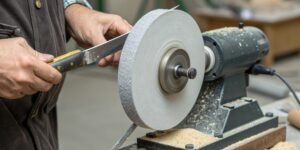
How to use a hard felt bench grinding wheel on knives?
Getting a razor-sharp, polished edge on a knife can be frustrating and slow. A dull knife is dangerous, and using the wrong tool can easily
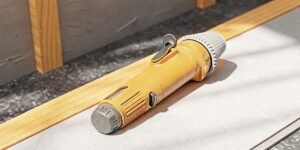
What is the smallest angle grinder?
Finding a grinder for tight spaces is tough. The wrong tool damages your work. Let us guide you to the perfect compact angle grinder for
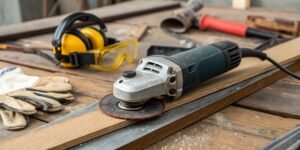
When should you use an angle grinder?
Feeling unsure about which tool to grab? Using the wrong one can waste materials and time. An angle grinder is a powerful, versatile solution for
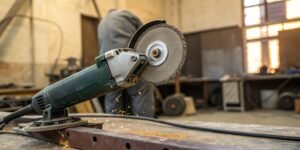
Can I use a bigger disc on an angle grinder?
You have a job to do, but the only disc you have is larger than your grinder. Using it seems like a quick shortcut. But
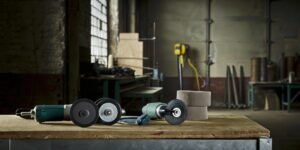
Why Do We Need Grinding?
Your parts don’t meet precision requirements, leading to poor performance and costly rejects. Grinding is the essential final step that delivers the perfection your high-quality

How to use a glass grinding tool?
Your glass has rough, sharp edges that are a real safety hazard. Trying to handle or finish the piece can lead to cuts or ruined
